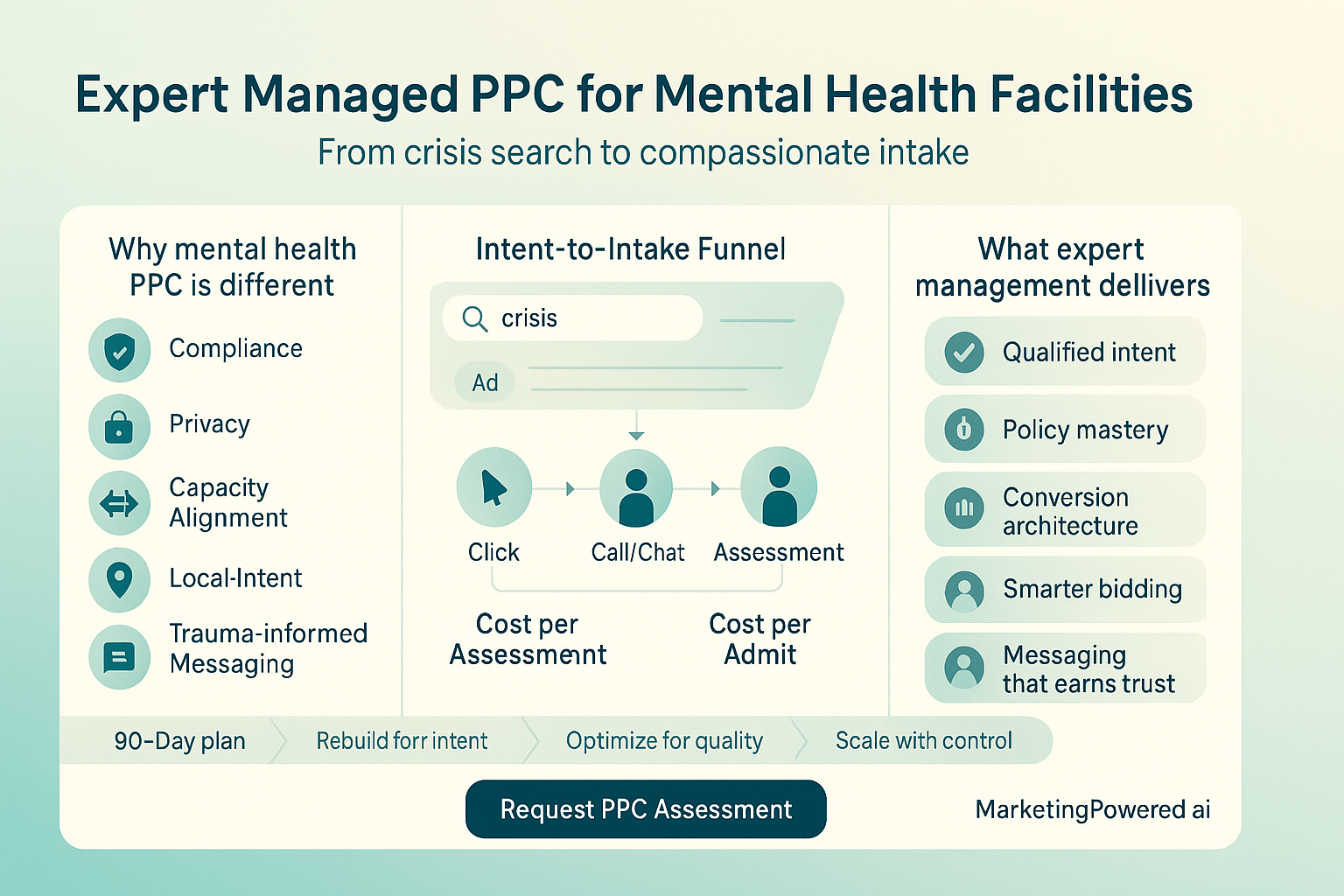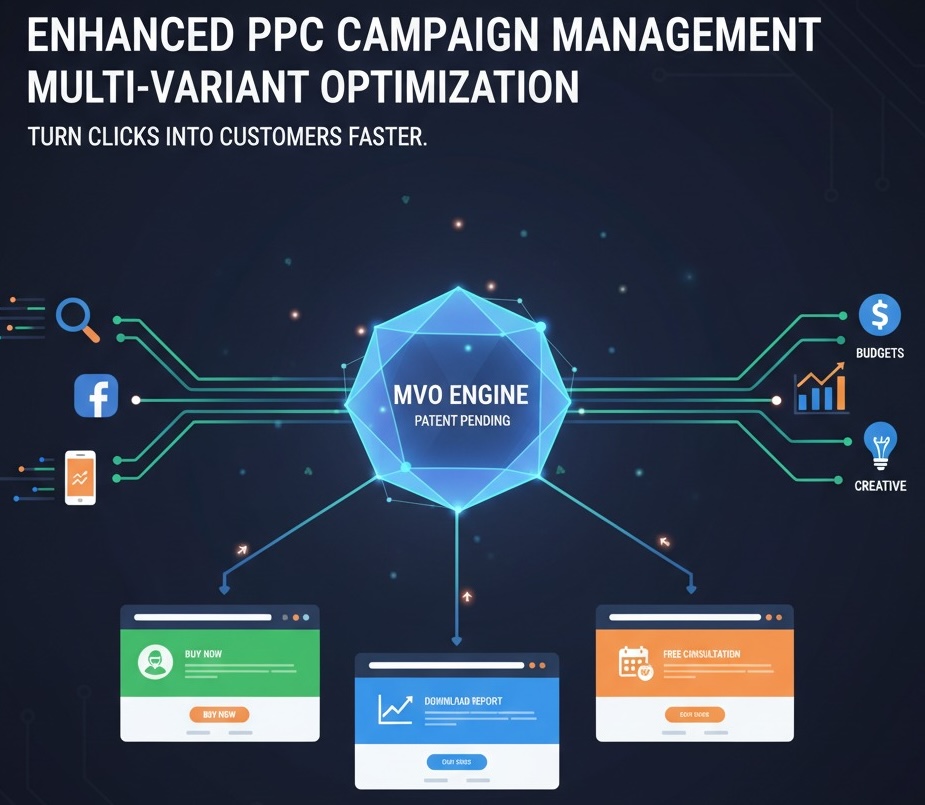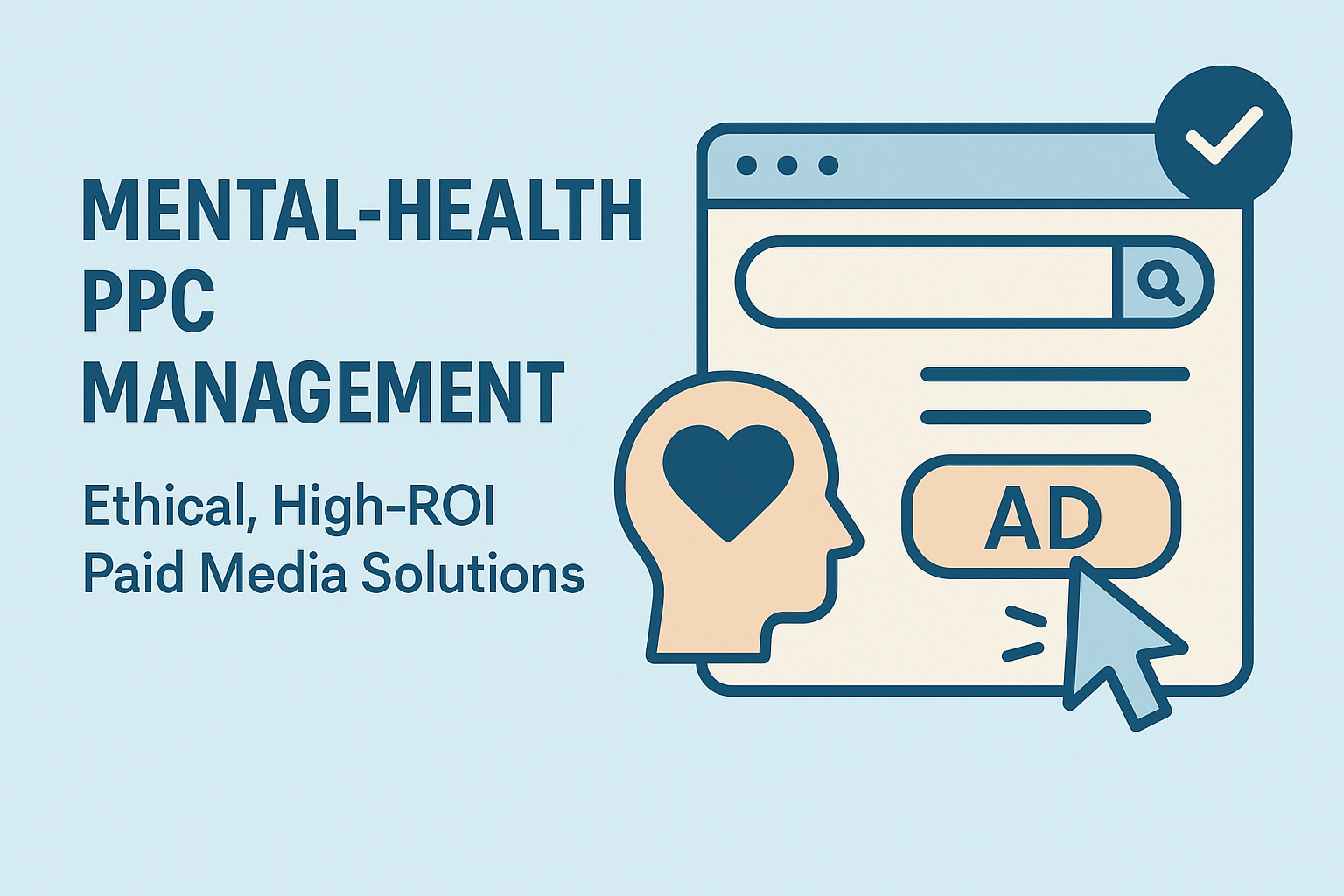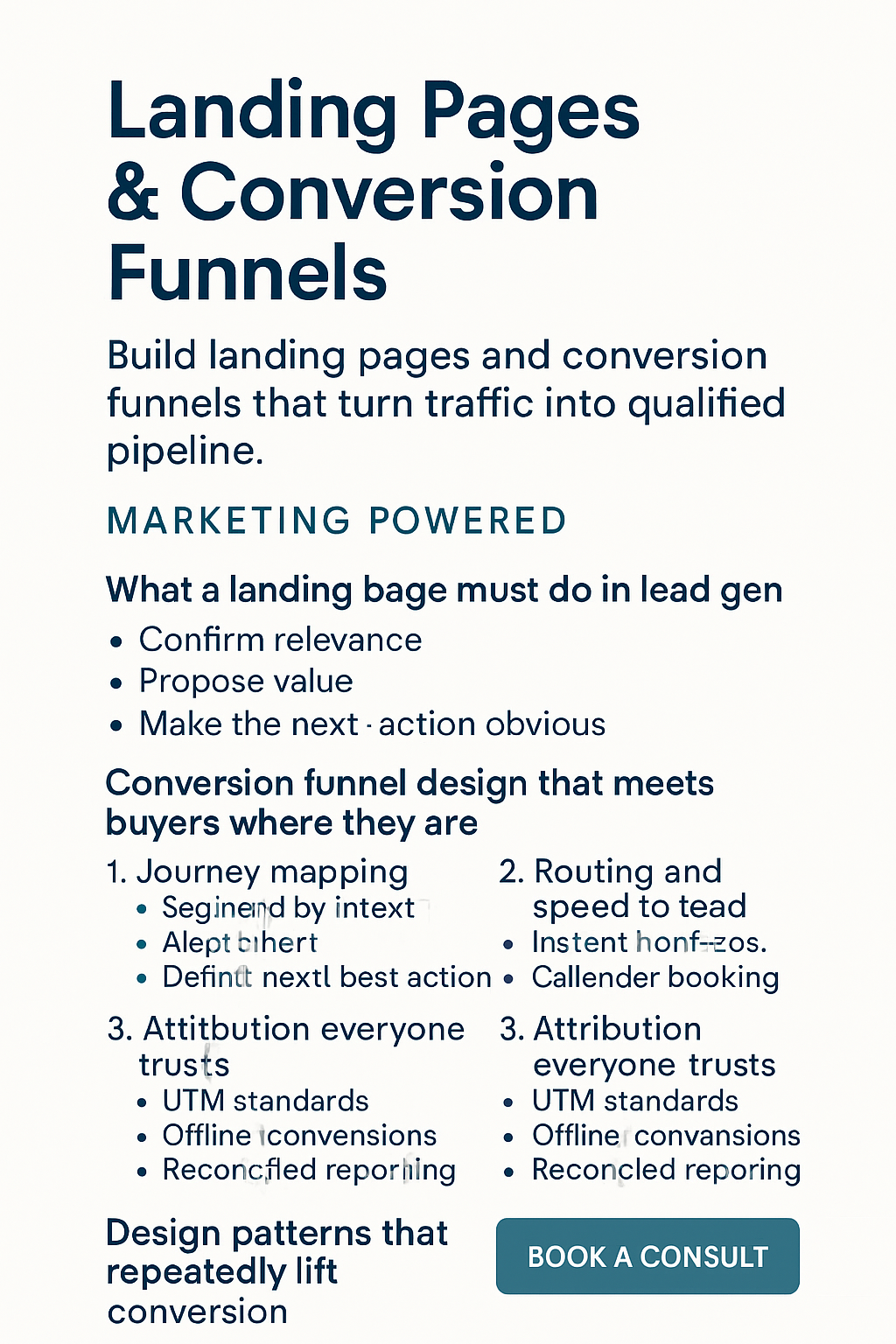TL;DR: Paid search can fill beds and therapy schedules, but only if it is handled by specialists who understand clinical intake, platform policies, privacy, and the realities of families searching in a crisis. Expert management protects your brand, reduces wasted spend, and turns searches into admissions with measurable precision. If you manage a treatment center or behavioral health group, request a free PPC assessment today.
Why mental health PPC is different
People looking for help are anxious, time pressed, and often searching on behalf of someone they love. That changes everything about how you plan, write, target, and measure campaigns.
- Safety and policy compliance: Ads must respect sensitive content rules while still connecting people to care. Mistakes trigger disapprovals, throttling, or account risk.
- Privacy-aware analytics: Call recording, forms, and remarketing require careful configuration to stay compliant while still giving you the data you need to optimize.
- Capacity alignment: Your budget and bids should flex with census by program, payer mix, and bed availability so you do not pay for demand you cannot serve.
- Local intent: Catchment-area targeting, drive-time radii, and dayparting are essential. Families search at night and on weekends. Your ads and call routing must be ready.
- Trauma-informed messaging: Copy and landing pages must remove stigma, clarify next steps, and make it simple to call or chat right now.
This mix of policy, privacy, and clinical operations is why generic PPC does not work. It needs experienced hands.
What expert management delivers
1) Qualified intent without harm
The right team builds intent tiers that map searches to care pathways: crisis lines, assessments, outpatient, residential, and specialty programs. Negative keywords remove misaligned queries. Ad copy avoids labels and judgment, focusing on safety, availability, and what will happen in the first five minutes after a call.
2) Policy mastery that keeps you live
Specialists know how to navigate sensitive categories, write compliant ads, and use allowable extensions. That protects quality score and prevents spend from stalling at the exact moment your community needs you most.
3) Conversion architecture that teams can trust
Leads are not enough. Your dashboard should track cost per assessment, cost per admission, and admit rates by campaign, device, time of day, and payer. This requires call tracking with consent language, unique numbers by channel, and offline conversion imports that tie closed-loop outcomes back to the keyword. Your landing pages should load quickly, answer common questions in the first screen, and follow a clear hierarchy that both people and machines can understand. Adding TL;DR blocks, FAQs, and structured data helps answer engines and assistants surface your content when families ask complex questions.
4) Smarter bidding tied to clinical goals
Predictive bidding and budget pacing should target admits, not clicks. Campaigns can optimize toward phone-quality signals and downstream outcomes once your offline conversions are flowing. That is how you lower acquisition cost while lifting admission volume.
5) Messaging that earns trust
Families want clarity: program fit, insurance accepted, first appointment timing, and what an assessment involves. Short paragraphs, direct answers, and supportive tone win more calls than slogans. Consistency of terms across pages and ads also improves how assistants reference your site in answers.
A 90-day plan that works
Days 1 to 15: Diagnose and stabilize
- Audit accounts, policies, and tracking.
- Stand up privacy-aware call tracking and unique numbers per channel.
- Map current spend to programs and payers.
- Draft new ad groups for crisis, assessment, and program-specific intent.
Days 16 to 30: Rebuild for intent and measurement
- Launch new campaigns with clear match types, negatives, and sitelinks that reflect your program menu.
- Implement offline conversion imports to target admits, not just calls.
- Replace slow or generic landers with fast pages that open with direct answers and an obvious next action. Add TL;DR and FAQs to help people and assistants understand your offer.
Days 31 to 60: Optimize for quality
- Run search term reviews twice weekly.
- Shift budget toward campaigns driving verified assessments.
- Add dayparting for after-hours coverage and adjust bids by device and distance.
- Expand copy tests focused on empathy and clarity, not buzzwords.
Days 61 to 90: Scale with control
- Layer in Performance Max and YouTube only after search is profitable.
- Use audience signals from high-quality callers to refine targeting.
- Publish FAQs and program pages with clear headings, short sections, and structured data so assistants recognize your authority on care options in your region.
Landing pages that lift both ads and admissions
Search engines reward pages that load quickly and present information in a clean outline. Assistance platforms prefer content with straightforward headings, lists, and question-answer sections. Your PPC landers should mirror that: a single H1, logical H2s, short paragraphs, and a prominent phone button. Including FAQPage schema on high-intent pages improves machine comprehension without changing the user experience.
What to ask any PPC partner before you sign
- How will you tie spend to admits and length of stay, not just clicks and calls?
- What is your plan for sensitive-category compliance and account safety?
- How will you align budget and bids with bed availability by program?
- What are your call routing and after-hours coverage recommendations?
- How will you structure landing pages and FAQs so both people and assistants can extract answers fast?
Why Marketing Powered
PPC management is a core service, supported by conversion optimization, SEO, and content that is organized for both people and assistants. Our site architecture and service model were built with this in mind, including dedicated PPC strategy and management plus CRO and analytics that connect ad spend to real clinical outcomes.
FAQs
How should a facility track PPC ROI?
Track cost per assessment and cost per admit by campaign. Import offline conversions from your EHR or CRM to optimize bids to real outcomes. Add unique call numbers per channel and record consented calls for quality scoring.
What budget do we need to start?
Base it on your census gap and admit targets, not arbitrary click goals. Many centers start with a pilot in a single program and expand once cost per admit stabilizes.
Do assistants and AI overviews matter to PPC?
Yes. People ask assistants for help before they click a result. Structuring landers with clear headings, TL;DR, and FAQs increases your chance of being referenced in those answers and improves quality scores through better engagement.




